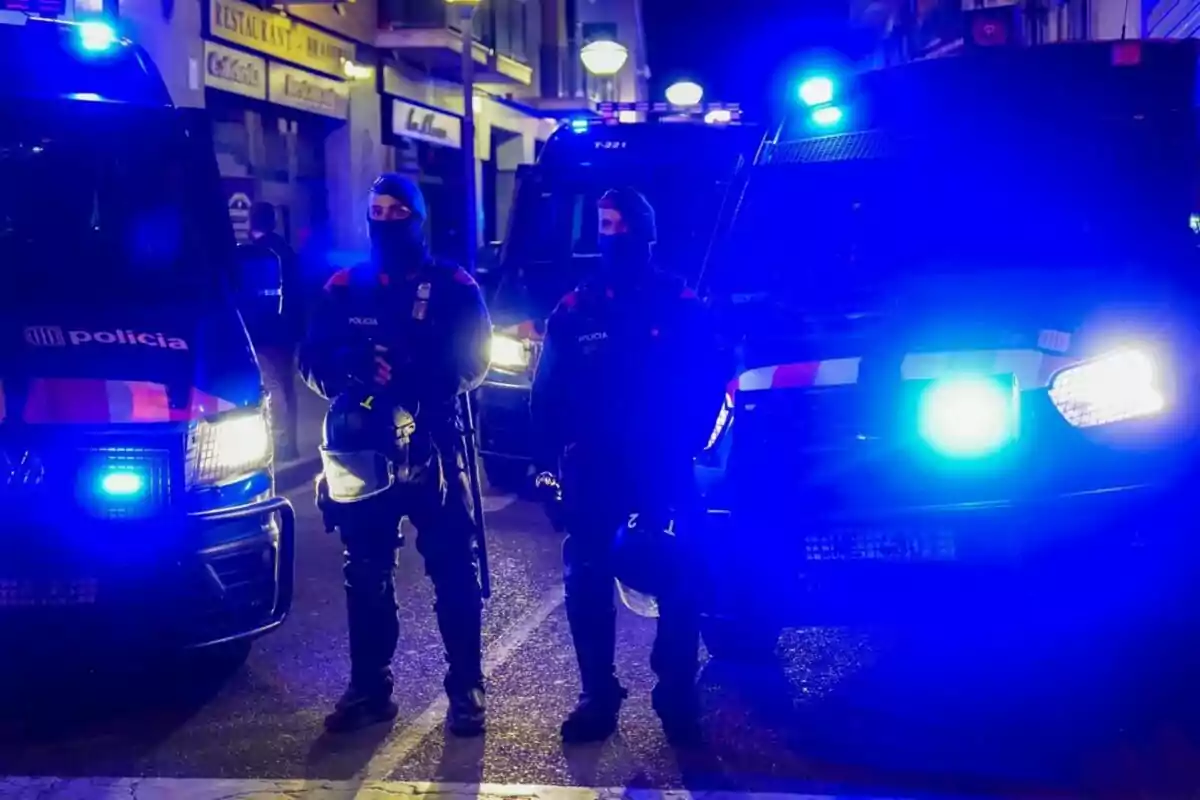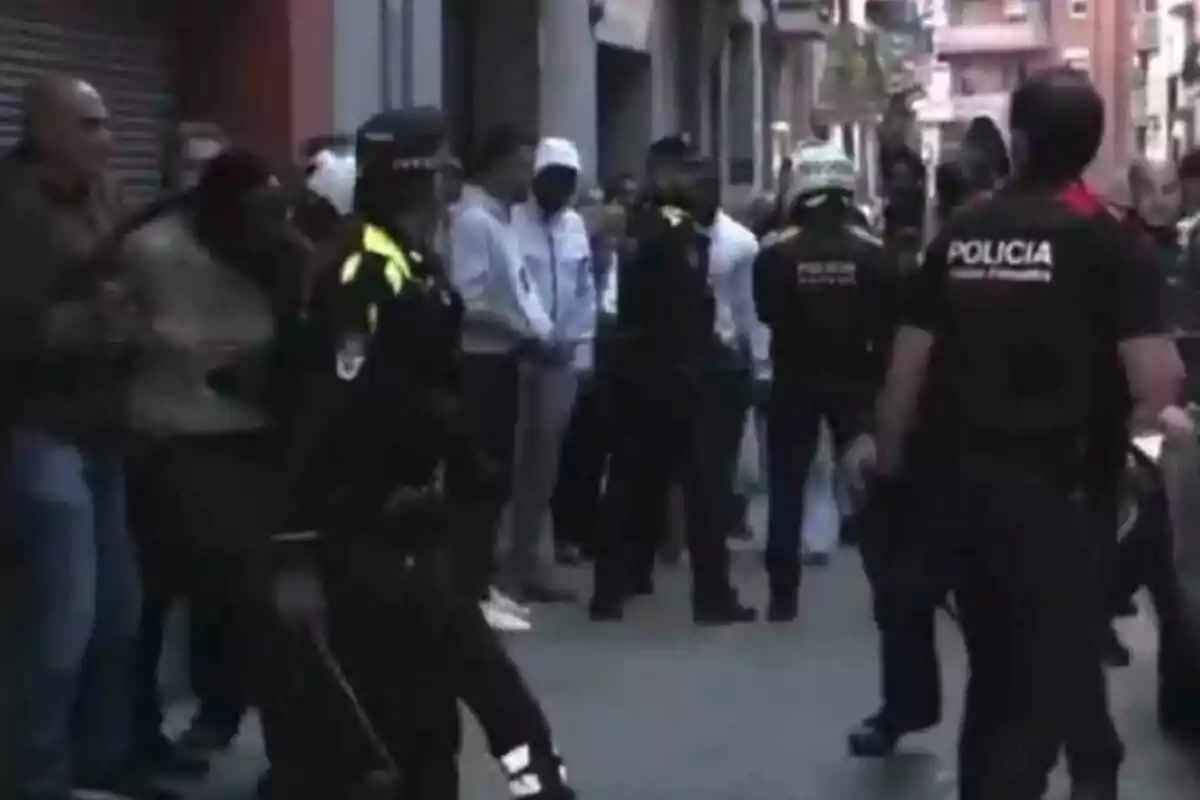
Threats to Neighbors and Attacks on Police: What's Behind the Squatters in Mataró
The police have arrested the squatter detained last week again
Last week, an outbreak of violence similar to that in Salt just a month ago occurred in Mataró. The intervention of the Mossos d'Esquadra in an attempted squatting by two sub-Saharan individuals was the origin of the conflict. A mob of foreigners and pro-squatting activists turned against the police and set the streets on fire.

Housing unions and activists have once again attributed the street violence to the housing problem. But it only took a few days for their arguments to be called into question. A new incident has exposed the true face of the squatters in Mataró, whom some consider vulnerable.
The Local Police of Mataró reported on Saturday the arrest of two individuals for attacking officers of the force. One of the detainees is precisely the squatter who was arrested on Wednesday, which triggered the riots.
The detainees attacked two officers of the Local Police who had replied to a neighbor's call. Besides the violence against the authorities, these squatters have been threatening neighbors and creating coexistence problems for some time. According to the neighbors themselves, they threatened to burn the building after the failed squatting attempt.
Two Opposing Views
A tense calm now reigns in the neighborhood thanks to the reinforced police presence over the next two weeks. This deployment, with riot police and motorized patrols monitoring the area, has also been criticized by anti-establishment groups. They accuse the police of taking advantage of the conflict to impose a police state in the neighborhood.
The Sindicat de l'Habitatge de Mataró has denounced a "state of police exception" and a "serious cutback of rights and freedoms." This is in response to the warning from the PSC mayor, David Bote, that the disturbances "will not go unpunished."
The mayor promised to keep "an active and forceful police presence" "to enforce the law." But the union linked to the far-left criticizes that the response to the housing problem is "more police and more evictions." The neighbors claim that the riots were led by organized groups of hooded youths.
Mataró, On the Edge
What has happened in recent days is the result of the degradation of security in Mataró and, especially, in the Cerdanyola neighborhood. Mataró leads squatting in Catalonia, with 70% more break-ins than the Catalan average. The occupancy rate is especially high in this neighborhood, where residents live in fear.
The problem is so evident that the socialist mayor copied Xavier García Albiol's model in Badalona, with the creation of an anti-squatting office.
Squatting is one of the main causes of the rise in crime and incivility in Mataró. Local sources point out that there are neighborhoods in the city where the police hardly dare to enter anymore.
Vox and PP Sweep in These Neighborhoods
Mataró was the Catalan city where Vox grew the most in the last municipal elections. The party led by Mónica Lora was the second most voted force in eight of the twelve districts. Where it obtained the best results was precisely in Cerdanyola, with 18% in the north and 17% in the south.
Vox, which based its campaign on insecurity and squatting, has once again raised its voice in the face of last week's disturbances.
The third most voted party in these crime-ridden neighborhoods was the PP, which also has a similar discourse. In contrast, pro-squatting parties were marginal. This shows that beyond the official narrative is what the neighbors suffer daily.
More posts: